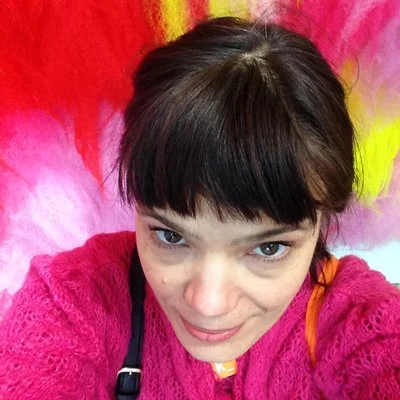art & politics for plants
ON PLANT GEOPOLITICS, PHYTOENGINEERING AND UNCANNY CROPS
How do artists, designers and activists use performance, biohacking, robotics, synthetic biology, photography or gaming to probe and challenge the capitalistic abuses of plants, soils and the communities that take care of them?
• 1. February - 1. March 2021
• Online!
• Five-weeks, Mondays, 7-9PM CET
• Small class of participants
Pricing (For tickets click here)
Artist / Student (Full Time)
€175
Freelancer*
€195
Professional*
€215
Generous Supporter Ticket*
€255
Solidarity ticket*
Donation (Limited)
*plus fees (VAT EU ONLY)
course
description
Western cultures tend to see nature as a vast reservoir of services and resources to own and capitalise on. Plants, in particular, are often regarded as mere tools to exploit for food, medicine, fuel, industry and ornamental purposes.
Over the years, however, this purely utilitarian viewpoint has revealed its calamitous consequences, marginalising communities, fostering inequality and threatening biodiversity and the survival of the animal world. Time has come to co-evolve in a more sympathetic and mutually beneficial way with the oldest and most
important (in terms of biomass at least) inhabitants of this planet.
Each week, the class will give a broad overview of the debates, state of knowledge and possible controversies surrounding a specific theme. The survey will be accompanied by many examples of artworks and design projects that illustrate, contest or investigate that same topic.
There will be space for questions and conversations.
course outline
Week 1: A moment to get to know each other.
There will be introductions of who we all are but also discussions regarding expectations and what you hope to gain from the class. These brief exchanges will help make the online classroom experience a bit more convivial and a bit less virtual. In these Coronavirus times, physical distancing is recommended but intellectual distancing is not!
#petswelcome #humanconnectedness
Week 2: Explore and exploit
Part 1: The extraction of precious resources that characterised colonialist times continues today. The actors are more or less the same, the effects no less drastic than in the past for local communities and biodiversity.
Artworks offer platforms to debate about the various forms of “colonial pillaging”. They investigate issues such as the ethics of conservation conflicts, land grabbing, food sovereignty, biopiracy and the colonialist heritage of plant collections.
Part 2: A look at how local communities are fighting back against the various forms of eco-looting and the efforts of the transgenic industry. Theirs is a battle to preserve a whole culture, an identity and a certain vision of the world.
#biodiversity #GenomeEditing #microbiology #bioart #neocolonialism #extractivism #biopiracy #palmoil #forestry #phytoremediation #pollution
Week 3: Policing our ecological borders
We have a complicated attitude towards the so-called invasive species. They can outcompete local species and wreak havoc on ecosystems. A number of scientists, however, caution that eradicating them can in some cases be a costly and futile endeavour. On a planet constantly threatened by the effects of global warming, these much-maligned plants might sometimes even help collapsing areas regain some ecological dynamism. In some cases, the migration of plants is even encouraged and some scientific projects even consider the need to help trees “walk away” from the pressures of a fast-changing world.
The nostalgic view about which plants belong to a specific territory has also led some institutions and private interests to investigate the possibility of bringing back long-extinct species.
This session will explore the various strategies adopted to control and define which native or non-native species are desirable, missed, invasive, perfectible.
#extraterrestrial #DeExtinction #seedbanking #privatisation #conservationism #xenobiology
#syntheticbiology #cloning #crispr #invasive #migration #massextinction
Week 4: Transgenic trees and space crops
Curious plants and life-forms are emerging inside labs and in the wild. Some of these plants had to evolve in order to cope with the pressures of a rapidly changing world. Others appeared as the results of direct human intervention, their mutations engineered to serve purposes ranging from pharmaceutical research to future food production on distant planets.
How do artists, designers and scientists help us reexamine the models we’ve inherited and used for centuries when they do not reflect anymore the proliferation of life forms designed, redesigned and invented in laboratories? How do newly-engineered life forms force us to reevaluate the dichotomy between nature and artificiality?
The second part of the evening will be an invitation to reflect on the technical implications of working with living material in art and of exhibiting life inside museums, galleries and in other cultural contexts.
#radiationbreeding #highfructosecornsyrup #ecovention #monsanto #OGM #phytoremdiation #hyperaccumulators #exobiology #taxonomy #microbialfuelcells #postnatural #geneticengineering #darkecology #biohacking #phytoengineering
Week 5: Plant thinking and thinking plants
Part 1: Thinking plants. Stefano Mancuso, a pioneer in the study of plant neurobiology, believes that we need to study plants as cognitive organisms. Furthermore, our future, he says, could be shaped by the lessons we learn from the way plants communicate, harvest energy, channel external help and solve problems. How are artists already probing the field of plant neurobiology?
Part 2: Thinking about plants. “The survival of the fittest” or the holobiont? By stressing the importance of symbiotic and cooperative relationships between species, contemporary scientists challenge the competition-oriented views of evolution and the way they contribute to damaging the planet. In response to this paradigm, designers and artists create new narratives to not only question traditional Western concepts of nature and “otherness” but also to pay homage to indigenous worldviews.
#kinship #rootnetwork #chemicalvolatiles #holobiont #computationalplanet #Sapmi #LynnMargulis #decolonisingecology #Darwinism #symbiosis
who is this class for?
Artists, designers, makers and pretty much anyone interested in non-human life and its future. Come join us. Enthusiastic like-minded community included. No experience necessary.
about live classes
Classes are 'live' meaning that you can directly interact with the instructor as well as with the other participants from around the world. Classes will also be recorded for playback in case you are unable to attend for any reason. For specific questions, please email us and we'll get back to you as soon as we can.
about tickets
Tickets for this class are currently available via Eventbrite. If you would like to avoid Eventbrite fees, please email us for direct payment options. We kindly ask that all “pay-what-you-can” students register through Eventbrite. Due to reduced staffing, we’re unable to handle specific payment requests for these registrations.
about solidarity
We realise we're living in uncertain times. During this time, we are offering a limited number of pay-what-you-can solidarity tickets for this online class. These are reserved for women, POC, and LGBTQ+ who would otherwise be unable to attend. We are a small organisation with no outside funding and like many, we are also in survival mode and we ask you to consider this when making your donation. We are greatly appreciative of your understanding and support.
meet the instructor
Regine Debatty
Curator, Critic, Founder
Régine Debatty is a curator, critic and founder of http://we-make-money-not-art.com/, a blog which has received numerous distinctions over the years, including two Webby awards and an honorary mention at the START Prize, a competition launched by the European Commission to acknowledge "innovative projects at the interface of science, technology and art".
Régine writes and lectures internationally about the way artists, hackers, and designers use science and technology as a medium for critical discussion. She also created A.I.L. (Artists in Laboratories), a weekly radio program about the connections between art and science for Resonance104.4fm in London (2012–14), and is the co-author of the “sprint book” New Art/Science Affinities, published by Carnegie Mellon University (2011.) She co-authored, together with Vuk Ćosić and Prof. Vladan Joler a guide about AI and culture for the Council of Europe (to be published in early 2021.)


